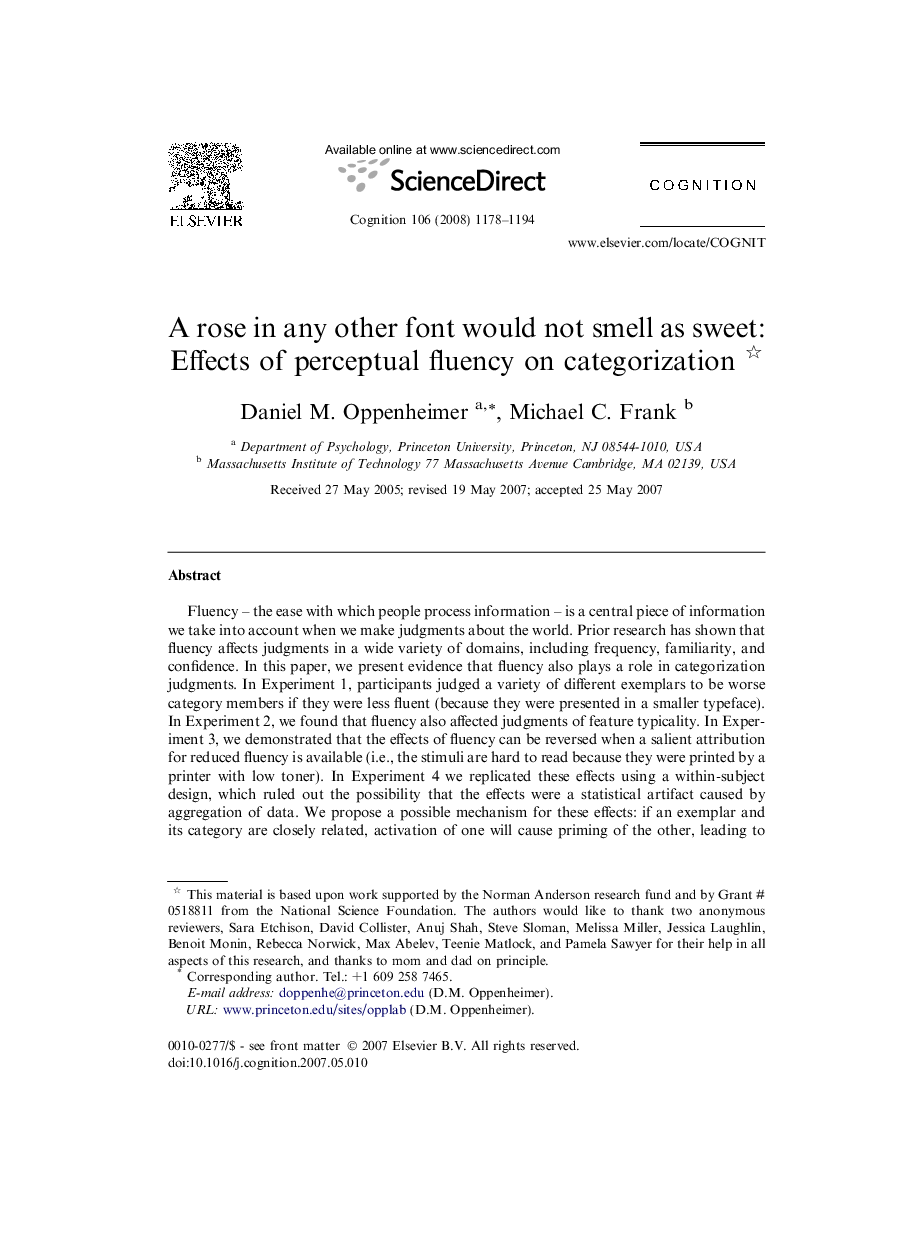| Article ID | Journal | Published Year | Pages | File Type |
|---|---|---|---|---|
| 927383 | Cognition | 2008 | 17 Pages |
Fluency – the ease with which people process information – is a central piece of information we take into account when we make judgments about the world. Prior research has shown that fluency affects judgments in a wide variety of domains, including frequency, familiarity, and confidence. In this paper, we present evidence that fluency also plays a role in categorization judgments. In Experiment 1, participants judged a variety of different exemplars to be worse category members if they were less fluent (because they were presented in a smaller typeface). In Experiment 2, we found that fluency also affected judgments of feature typicality. In Experiment 3, we demonstrated that the effects of fluency can be reversed when a salient attribution for reduced fluency is available (i.e., the stimuli are hard to read because they were printed by a printer with low toner). In Experiment 4 we replicated these effects using a within-subject design, which ruled out the possibility that the effects were a statistical artifact caused by aggregation of data. We propose a possible mechanism for these effects: if an exemplar and its category are closely related, activation of one will cause priming of the other, leading to increased fluency. Over time, feelings of fluency come to be used as a valid cue that can become confused with more traditional sources of information about category membership.
